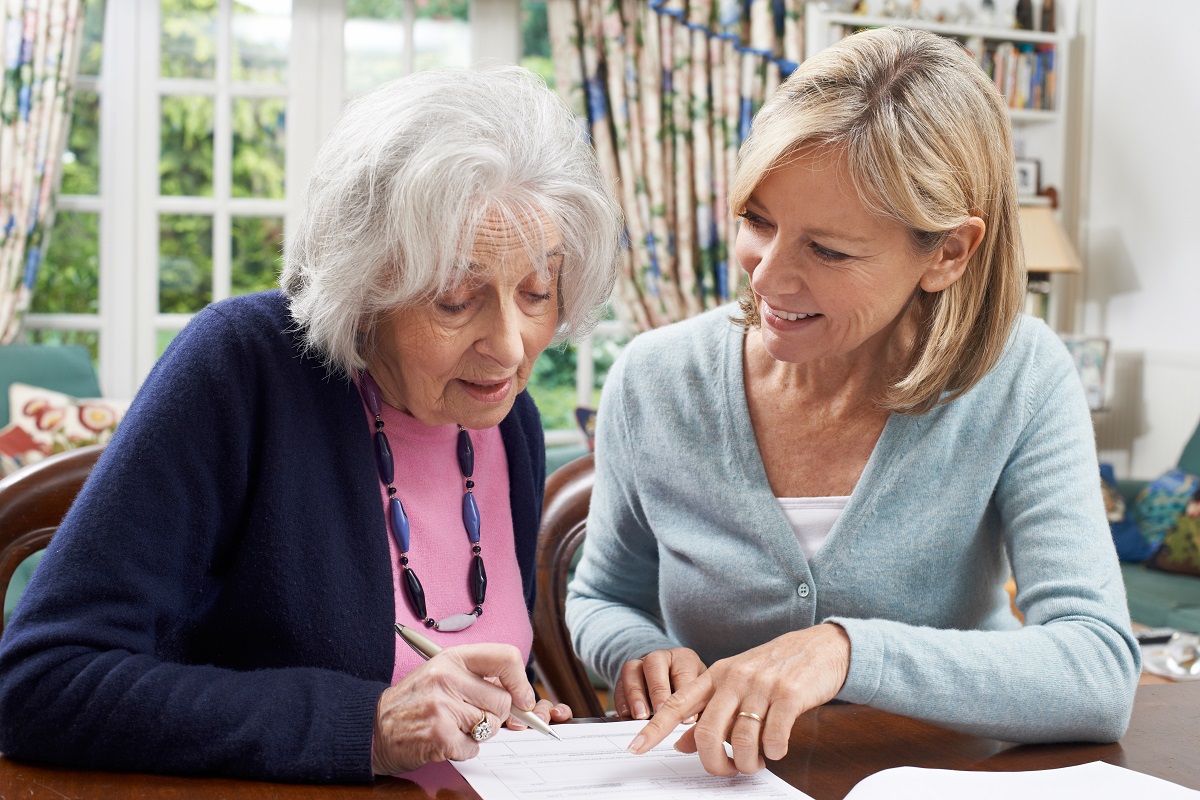Caring for a spouse or family member with dementia can be a rewarding, challenging and sometimes overwhelming experience.

From supporting a loved one throughout their journey with dementia to taking on household, financial and legal responsibilities that may be new and unfamiliar, many carers express worry or stress about their new role.
According to RetireAustralia’s Supported Residential Facility Area Manager and registered nurse Di Talbot, there are several things that you can do to help ease the impact that dementia has on you and your loved one’s lives.
1) Look out for dementia symptoms and secure a diagnosis early
The majority of dementia cases are diagnosed roughly two to three years after the onset of symptoms, which delays patients from seeking critical medical and emotional support in the early stages of their condition.
To ensure that early symptoms aren’t overlooked, speak with a doctor if your loved one exhibits the following behaviours:
- Memory loss
- Confusion
- Personality change
- Apathy or withdrawal
- Loss of ability to perform everyday tasks
These symptoms are often seen as normal signs of ageing but are a common indicator of Alzheimer’s disease and other dementia-causing conditions. Having a timely diagnosis of an underlying condition can help you and your loved one to accept the coming changes and allow you to plan for the future together before symptoms progress further.
2) Research the disease and find out what works for others
With over 350,000 Australians currently living with dementia, many people have been in your position and there are a number of useful resources about coping with progressing dementia symptoms. Other carers suggest:
- Maintain a daily routine to help keep your loved one calm and relaxed
- Focus on your loved one’s abilities rather than things they can no longer do, and give them plenty of opportunities to help out however they can
- Speak softly but avoid treating them like a child
- Maintain physical contact when communicating to help ease distress
- Exercise patience and try to remember that any inconvenience is caused by the disease, not the person
3) Accept help from others and take time for yourself
As a carer, your health and wellbeing are paramount; you can’t support your loved one if you aren’t feeling your best.
Many carers experience grief, burnout, stress and even depression as a result of caring for their loved one. These feelings are natural and should not be a source of guilt. Make sure that you express your thoughts by talking with your friends, family or doctor or by contacting a support group in your local area.
It’s also important to take time out for yourself to ensure that you’re happy and healthy and to maintain your identity outside of the carer role. Socialising, exercising and reconnecting with old hobbies are great ways to do this. Respite care can provide you with this time to recharge and relax for a small fee or you can reach out for help from your family and friends.
Find support:
National Dementia Helpline
Information and counselling service – call 1800 100 500
Alzheimer’s Australia
Carer support groups – visit fightdementia.org.au/services or call (02) 6278 8900 to find a group in your area






